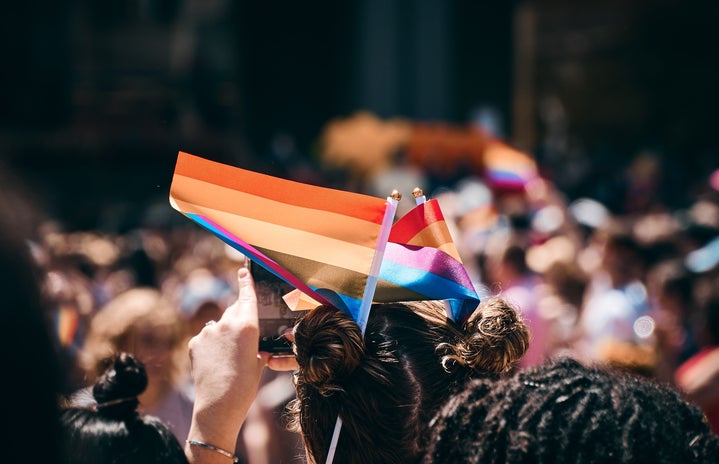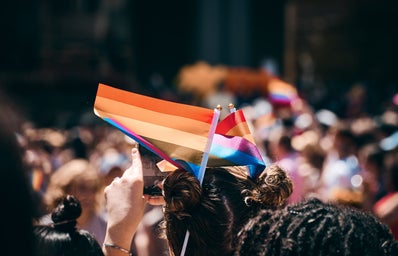Looking back at history, the ruthless struggles of the LGBTQ+ community to gain a safe space that allows for free self-expression, normalization of identity, and overall acceptance can be seen clearly. From Chicago’s Society of Human Rights disbanding due to political pressure in the 1920s to the U.S. Supreme Court declaring same-sex marriage legal in all 50 states in 2015, there’s no doubt that there has been plenty of progress made when it comes to how the community is perceived and treated in society.
However, the progress that’s been made shouldn’t undermine the work that still needs to be done. While North America’s views on the LGBTQ+ community have changed positively over time, that doesn’t mean that everyone is supportive. During the Trump administration, government officials — including the president himself — supported a variety of propositions that worked to hinder this positive progress. These propositions included banning transgender individuals from serving in the U.S. military, authorizing emergency shelters to refuse entry and access to transgender and non-binary individuals, removing webpages on LGBTQ+ rights and recognition from government websites and the list goes on. Recently, the State of Florida has introduced a bill that can serve as one of these setbacks.
The Parental Rights in Education Bill, commonly dubbed as the “Don’t Say Gay” Bill, was passed and Gov. Ron DeSantis made his support for the bill public. The new law states that a Florida school district “may not encourage classroom discussion about sexual orientation or gender identity in primary grade levels or in a manner that isn’t age-appropriate or developmentally appropriate for students.” If the bill is violated in any way, parents are given the ability to sue schools and their districts however deemed necessary.
In a nutshell, this new state law attempts to further limit and discourage discussions surrounding LGBTQ+ identities. The bill doesn’t classify what is considered age-appropriate or developmentally appropriate, thereby allowing for multiple interpretations from school systems and guardians who may decide to press charges or take legal action if a violation is believed to have occurred.
President Joe Biden has openly denounced the hateful bill, vowing to “continue the fight for the protections and safety” that impacted children deserve. This is only in conjunction with parents and children expressing their disdain for the bill and fear of further LGBTQ+ erasure. Nicolette Smith, a fourth-grade teacher in Miami-Dade County who already feels hesitant to mention her wife at school, vows to quit if this bill became law, stating, “If I can’t be myself, seven hours a day, five days a week, then I’m going back in the closet, and I can’t do that. It’s not good for my own mental health.” On a larger scale, Palm Beach County School Board also denounced the bill, referring to it as “worrisome” and that it “threatens the ideals of inclusion.” In a letter to Florida lawmakers, Superintendent Mike Burke and all seven school board members voiced their advocacy for their students’ identities and self-expression.
What makes this bill emotionally and physically dangerous is the continuous effort to isolate LGBTQ+ children and adults. By bringing such a law into effect, future generations are being denied the opportunity to become more educated on various topics. Learning about historical figures and events that fit outside of the typical box allows for more critical thinking and open-mindedness. And by becoming immersed in these learning experiences, it’s easy to become more open-minded and well-versed. The Parental Rights in Education Bill has allowed everyone to question where the perception is going. How are the times going to change, if at all?
The answer to that question’s up to us. However we choose to react to this bill, and any other anti-LGBTQ+ policies, show us how much our society will evolve for the better, if at all. Because of this, we need to say gay. Conversations as important as LGBTQ+ history and struggles need to be highlighted. Not only does this encourage intellect, but also empathy and compassion.
To contact Florida lawmakers and urge them to oppose the “Don’t Say Gay” bill, click here.


